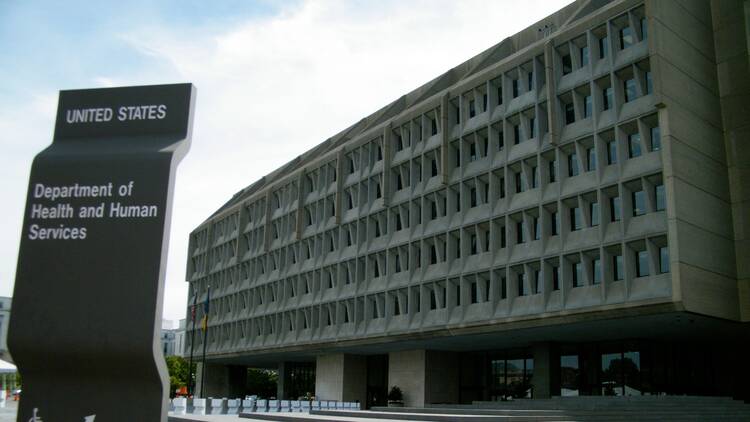WASHINGTON (CNS) -- The U.S. Department of Health and Human Services banned the National Institutes of Health from using human fetal stem cells from electively aborted babies for government funded research June 5.
The department also issued a $20 million grant for research to develop models that do not rely on human fetal tissue.
HHS released a statement saying that "promoting the dignity of human life from conception to natural death is one of the very top priorities of President (Donald) Trump's administration."
Archbishop Joseph F. Naumann of Kansas City, Kansas, chairman of the U.S. Conference of Catholic Bishops' Committee on Pro-Life Activities, issued a statement on this decision, commending the Trump administration for directing tax dollars away from fetal tissue and toward alternative research solutions.
"Scavenging and commodifying the body parts of abortion victims for use in research gravely disrespects the bodies of these innocent human beings," Archbishop Naumann said June 6. "Their remains deserve the same respect as that of any other person. To subsidize this degrading practice with our taxpayer dollars is deeply offensive to millions of Americans."
After an audit and review of its own research involving human fetal tissue and elective abortions, HHS elected to adopt the ban on human fetal research, not only within HHS itself, but to terminate contracts without outside institutions that used fetal stem cells for research.
It refused to renew a $13 million research contract with the University of California, San Francisco, because it failed to live up to their moral and ethical standards.
In 2019 alone, NIH spent $120 million on fetal tissue of unborn babies, according to a news release.
Knights of Columbus CEO Carl Anderson issued a statement citing the "millions of taxpayer dollars" that NIH "has spent pursuing this unethical research" and thanking HHS for "this important action and encourage HHS to ensure that all grants maintain a respect for human life.
In addition to refusing to renew its contract with the University of California, San Francisco, HHS will change its regulations for future NIH grants in order to uphold its safeguards against exploiting human fetal tissue.
The department also funded a $20 million research project to discover alternatives to fetal stem-cell research. The goal is to create human tissue substitutes that can be reliably used to test the effects of new drugs on the human body.
In a news release, Republican Rep. Chris Smith of New Jersey, who fought in the House to end NIH's fetal tissue research programs, said that "there are proven ethical alternatives for life-saving research such as using mice with humanlike immune systems developed from bone marrow and umbilical cord blood."
Current avenues of alternative research under the HHS grant include donated cadaver tissue from deceased newborns, tissue modeling, and genetically altering mice to undergo human drug tests.











Another step backwards on science. Job well done, Republicans.